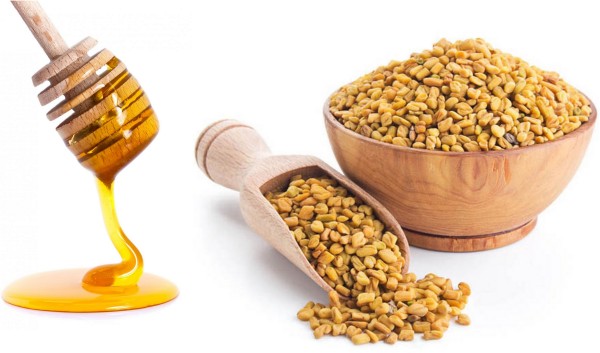Fenugreek is a primitive herb that has been used in cooking since ancient times. It is a popular kitchen spice that adds flavor to the food. Besides being a major ingredient in cooking, it is helpful in the treatment of menstrual cramps, diabetes, high cholesterol and digestive disorders. Learning its features and dosage is important before consuming it.

About Fenugreek
Fenugreek is a renowned herb that is recognized as grayish-green color leaves. Its botanical name is “Trigonella foenum-graecum.” fenugreek extract has remarkable diuretic and anti-inflammatory properties.
These yellow brownish colored seeds when dried and crushed makes a beneficial medicine to successfully treat kidney ailments, arthritis, menopause issues, boils, menstrual symptoms, swelling and digestive issues.
What do Fenugreek Seeds Contain?
Fenugreek seeds are made up of special compounds, alkaloids and amino acids such as glycoside steroidal saponins, coumarin compounds, lysine, L-tryptophan, galactomannans diosgenin, fenugrin B and trigonelline. These seeds have a high amount of mucilagenous fiber and protein in it. The high amounts of polyphenolic flavonoids in it work as an antioxidant agent.
This property safeguards human red blood cells from any type of oxidative damage and inhibits the absorption of LDL cholesterol in the intestinal region. Also, regular intake of fenugreek extract reduces the production and release of LDL cholesterol by the liver.
The increased amount of soluble fiber is effective in reducing the rate of digestion and absorption of carbohydrate. This results in reduced levels of triglycerides and blood sugar in the body.
Dosage
The consumption of fenugreek is limited due to its pungent odor and bitter taste. As per the studies conducted on this beneficial herb it has been found that consuming five grams a day of its seeds or one gram of hydroalcoholic extract help in controlling the cholesterol and diabetes in a person.
Fenugreek can also be consumed in the form of tea. By taking one table spoon of fenugreek seeds and adding it to a cup of boiling water can give good relief from above mentioned ailments in an easy way.
Cholesterol-lowering Effects
Cholesterol excretion and fecal bile acid are increased due to the hypothesis attributes in the fenugreek. The cholesterol reducing activities and high fiber content in the seed reduce the speed of hepatic production of cholesterol.
Glucose-lowering Effects
Being rich in galactomannan, fenugreek exhibits antidiabetic action and Insulinotrophic properties. Both of these properties are also found in amino acid named as 4-hydroxyisoleucine found in the herb.
Restriction of the transport of glucose and deferred gastric emptying are the actions that make fenugreek an ideal ingredient in treating diabetes in the most effective and natural way.
Anti-inflammatory Effects
Anti-inflammatory properties present in fenugreek reduce swelling to a good extent in a person.
Fenugreek is a remarkable ancient herb that provides several health benefits to a person. It is considered to be highly safe for people of all age groups. Whichever form you choose, consuming it in the admissible quantities help you get the desired effects naturally and easily.

